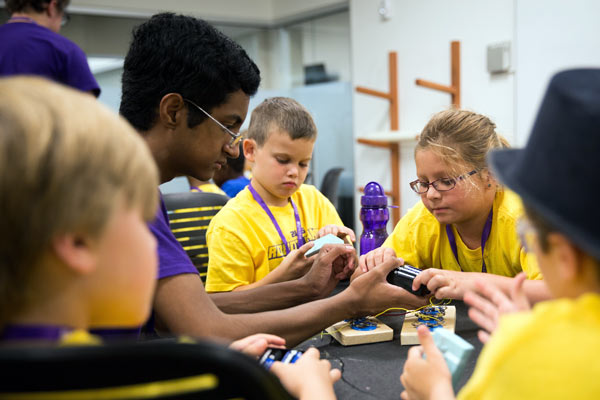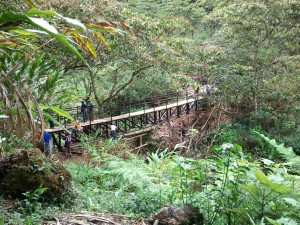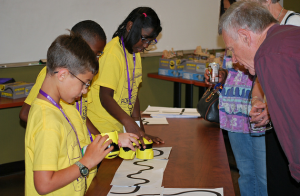
by Erika Plunkett | Apr 10, 2020 | BREAKING NEWS, COVID-19, News Slider
Lipscomb’s College of Engineering is busy protecting essential personnel who are participating in the mortal battle against COVID-19. The Raymond B. Jones College of Engineering has created and donated over 400 plastic face shields to medical personnel in the Middle Tennessee Area, and there are nearly 200 more currently in production. Leading this operation is Lipscomb’s Peugeot Center for Engineering Service headed by Steve Sherman, executive director, and Caleb Meeks, director of operations, along with Samuel Wright, the college’s engineering laboratory manager. “Connecting engineering capabilities with those in greatest need has been at the core of our engineering college and of the Peugeot Center,” said David Elrod, dean of the College of Engineering. “In this season, we are excited to find both virtual ways of staying connected with many of our international mission partners and to find new ways of serving our local communities.” These shields serve to help protect medical workers in the line of duty by placing a plastic mask in between practitioner and patient, protecting the eyes, nose and mouth from direct oral transmission from a patient. The design utilized by the engineers is an open source design originally created by Georgia Institute of Technology. “We’re using a high power, automated, laser system in our innovation lab to cut out the components,” said Elrod. “Having the tools in the innovation lab lets us readily produce face shields to help local providers.” As safety of the medical personnel is of top priority to the engineers, during construction of the shields, staff is adhering to strict CDC guidelines, wearing gloves and masks as well as limiting the number...

by Ashley Bingham | Feb 21, 2019 | Arts and Entertainment, News Slider
Hidden Figures is a story about breaking the mould — about progress and about bravery. It’s a story that has been hidden for years but now has been heard by millions. This past Tuesday, the Raymond B. Jones College of Engineering partnered with the English Department’s annual Landiss Lecture Series to bring in author Margot Lee Shetterly to talk about her book, Hidden Figures, in honor of Black History Month. Hidden Figures has been named the 2018-19 Nashville Reads book by the Nashville mayor’s office and the Nashville Public Library Foundation, as well as the Common Read by Lipscomb University’s LIGHT program. Hidden Figures is a story about three women, Dorothy Vaughan, Mary Jackson and Katherine Johnson (formerly known as Katherine Goble), and the work they contributed during the Space Race to launch astronaut John Glenn into space. Shetterly’s father spent his career at NASA Langley in Hampton, Virginia, where Shetterly grew up and where the story takes place. Her father worked with many of the women that she wrote about in Hidden Figures, including Johnson and Jackson. In her lecture, she discussed the how the public, along with the publishers and producers who helped share her story, have received Hidden Figures, and how it became more than anyone could have envisioned. The shocking response started fairly early in the works, as a film producer contacted her about turning the book, which was simply a proposal at this stage, into a movie. “The response to this story has been beyond anything I could have imagined, that the publishers imagined, that the movie people imagined, that NASA imagined, and most certainly, that the women at the core of this...

by Erin Turner | Jul 17, 2015 | News Slider
Robots slid through the classrooms of James D. Hughes Center this week under the direction of young campers, ages 8-11, who carefully piloted the controllers. The youngsters were a part of Lipscomb’s Junior BisonBot Camp — now in its ninth year. The robot experience began as a small camp and has grown into a program that now includes several weeks of robotics camps for different age groups, sponsored by the Raymond B. Jones College of Engineering and Nissan. Robotics camp co-director Ginger Reasonover — whose son Bryan hatched the idea for the camp — has been watching young engineers build robots since the camp began in 2006. The camp started out as Bryan’s Eagle project for scouting. The year before Bryan had been a part of BEST Robotics, a middle and high school robotics competition. “He said ‘you know, it’d be really cool if kids knew a little bit about electronics and motors and gears before they came to BEST,’ so he put on — with the blessing and help of [Lipscomb’s] Engineering College — the first robot camp,” Reasonover said. The first year the camp was called BERP, standing for “Bryan’s Engineering Robotic Project.” “It was such a success and there was such a need that the university picked it up and then the year after that Nissan came along as a sponsor,” Reasonover said. And Reasonover isn’t the only person to continue with the camp as it has developed. Counselor David Jack started as a camper and now serves as a counselor. “The first year that I was here it was not nearly as elaborate, but we had a...

by Emily Snell | Nov 28, 2012 | Uncategorized
After a successful career in military defense engineering, Kerry Patterson thought he’d arrive at age 65 and start sitting “on the porch in a rocking chair somewhere.” But now that he’s reached retirement age, Patterson says he’ll keep teaching classes and going on engineering missions trips as long as he can. Patterson, who started teaching engineering at Lipscomb nearly 10 years ago, said he entered education as an escape from the “commercial rat race.” According to Patterson, his old friend from the University of Tennessee Fred Gillam, former head of Lipscomb’s Raymond B. Jones College of Engineering, called one day to encourage Patterson to join the teaching staff at Lipscomb. “When I interviewed with the provost for the position,” Patterson said, “Dr. Bledsoe said, ‘I don’t really think I have much choice because I promised your friend that a condition of his taking the job was that he had to be able to hire you.’” After a three-year stint in the U.S. Army missile command, Patterson spent 25 years doing work related to military ballistic missile defense systems. But Patterson said education had been a possibility in the back of his mind for years. “I always thought that sometime down the road I’d like to teach and I’d like to teach in a Christian university,” he said. “But since there weren’t very many Church of Christ schools that had engineering, I thought I would probably have to settle for math or physics. When this college of engineering thing came along, it was an even better situation than I had anticipated.” Patterson said he knew when he came to Lipscomb that he...

by Emily Snell | Jun 21, 2012 | News Slider
School children armed with engineering tools have been learning electronics and robotics skills this month as part of Lipscomb’s Raymond B. Jones College of Engineering partnership with Nissan for the Lipscomb/Nissan BisonBot Robotics Camp. The camp, which started May 28, offers weeklong sessions, teaching elementary, middle and high school students about the basics of engineering. A diverse group of more than 120 students from across the country will have attended the camp by the time it ends June 29. According to Ginger Reasonover, co-director of the camp, the idea originated from her son Bryan’s Eagle Scout project. Reasonover said her son wanted to help kids participate in robotics while also learning about engineering. “It was such a huge hit that the university decided, ‘We’re going to do this next year,’” Reasonover said. Since 2007 when the camp began, Reasonover said it has continued to grow and gain support from the community and local businesses. In 2010, Nissan began sponsoring the camp. “They’ve increased their support every year,” she said. “A huge kudos to Nissan. With their support, we have been able to build this to what it is. Without their support, we couldn’t have this many kids; we couldn’t have this many counselors.” The camp involves a balanced approach between lecture and hands-on experience. Reasonover said the students attend lecture with engineering professors or working professionals and then have an opportunity to apply that learning in a workshop-type setting. The week culminates in a robotics competition and presentation for parents and friends, which allows the campers to showcase the projects they created during camp. The camp also includes a...






